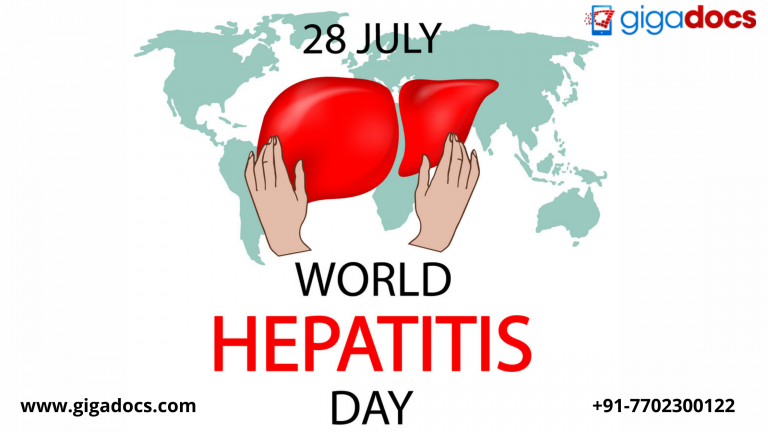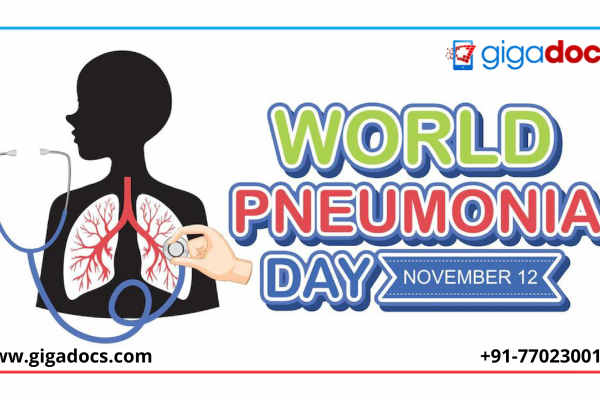Our liver performs several important functions that impact metabolism throughout the body, including bile synthesis that is necessary for digesting, and toxin removal. The liver also breakdowns carbs, lipids, proteins and is responsible for the excretion of bilirubin from broken-down red blood cells, cholesterol, and hormones. Besides, our liver activates enzymes, it is the storehouse of glycogen, vitamins (A, D, E, and K), and minerals, and contributes to the synthesis of blood proteins, like albumin.
Liver inflammation is known by the name of Hepatitis. Its possible causes include viruses, medications, drugs, toxins, and alcohol.
| Do you know? July 28th is observed as World Hepatitis Day? This day aims to call people worldwide together to join and raise awareness about the Types of Hepatitis, causes, and Hepatitis treatment available. |
Types of Viral Hepatitis
The different types of Hepatitis are Hepatitis A, B, C, D, and E. While Hepatitis A is a short-term, acute infection, hepatitis B, C, and D are more likely to become chronic and recurrent. Though Hepatitis E is rare, it can be a cause of worry to pregnant women.
Let’s know the types of Hepatitis in detail-
Types of Hepatitis
| Types of Hepatitis | Explanation | Hepatitis Treatment |
| Hepatitis A (HAV) | Hepatitis A virus is the dominant cause behind HAV, which commonly transmits by consuming contaminated food and water from a Hepatitis A patient. | HAV is a virus that affects for a short term, not requiring prescriptive treatment. It is wise to take bed rest if the symptoms cause discomfort. If a person experiences vomiting or diarrhea, we advise consulting a specialist on the Gigadocs app to receive the most suited prescribed medication and nutritional diet advice. |
| Hepatitis B(HBV) | One can contract Hepatitis B by coming in close contact with contagious body fluids that are HBV carriers. Besides, the HBV virus can also transmit by injecting drugs or sharing razors with an HBV-infected person. | Antiviral medicines, when continued for several months or years, can help to treat chronic hepatitis B. Besides, regular medical tests and monitoring are also recommended for chronic hepatitis B treatment to assess how the infected person responds to treatment. |
| Hepatitis C(HCV) | The hepatitis C virus (HCV) is spread by direct contact with contaminated bodily fluids, most commonly through injectable drugs. | Hepatitis C, chronic and non-chronic is treated with antiviral medication. People with chronic hepatitis C who develop cirrhosis (liver scarring), or liver illness may require further diagnostic tests to determine if they need a liver transplant. |
| Hepatitis D(HDV) | Also known by the name delta hepatitis, HDV is a severe liver disease that is caused by direct contact with HDV infected blood. Hepatitis D is rare and only occurs when Hepatitis B infection is present in a person. | Hepatitis B vaccine dose can prevent the onset of Hepatitis D. |
| Hepatitis E(HEV) | The hepatitis E virus causes the waterborne hepatitis E (HEV) infection. Determinant causes include poor sanitation and feces-contaminated water. | HEV has no specific antiviral dosage and usually gets better on its own. However, we advise you to get plenty of rest, drink lots of fluids, eat plenty of nutritious foods, and avoid alcohol. Pregnant women who contract HEV must take care and refer to their gynecologist. |
What causes Non-infectious Hepatitis?
Most non-infectious causes of hepatitis are not contagious. Hepatitis caused by alcohol poisoning, medications, or toxins or poisons are not transmitted from person to person, let’s know about them in detail-
- Alcohol- Excessive alcohol consumption causes alcoholic hepatitis, which can cause long-lasting damage to the liver, leading to liver failure, cirrhosis, thickening, and scarring.
- Autoimmune System Response- In rare cases, the immune system misidentifies the liver as a threat and, in turn, attacks it. It causes chronic inflammation that can range from mild to severe, impairing liver function in many cases. Autoimmune response affects women three times as it does to men.
Tips to Prevent Hepatitis
- Hygiene- Maintaining personal hygiene goes a long way to avoid catching hepatitis A and E. Hepatitis B, C, and D transmit through raw or undercooked seafood, raw fruits, and vegetables and can be avoided by not sharing drug needles, razors, or personal items like toothbrushes.
- Vaccines- Vaccination is a crucial mechanism of preventing hepatitis. However, only Hepatitis A and B vaccines are available to prevent the disease from spreading.
Complications of Hepatitis
Chronic hepatitis B or C can lead to a range of significant health issues. However, those with are infected with HBV or HCV are at severe risk of developing liver cancer, or chronic liver disease.
When our liver stops properly functioning, it can cause complications like-
- Bleeding
- Fluid buildup in the abdomen
- Increased blood pressure in the portal (portal hypertension)
- Kidney failure
- Hepatocellular carcinoma
- Hepatic encephalopathy (which can cause fatigue, memory loss, and diminished mental abilities)
| Do you know? Alcohol can expedite liver damage and failure and must be avoided by those with chronic hepatitis B and C. |
Medications and drugs might also impact liver function. We advise you to check with your doctor before starting any new medications if you have chronic hepatitis B or C.
Liver Specialist Care with Gigadocs
Our liver is an essential organ for our health. We must keep it strong. Don’t overlook any symptoms that make you feel uneasy, such as stomach pain, diarrhea, fatigue, loss of appetite, fever, or dark yellow urination. Various tests, such as a liver function panel, Hepatitis A, B, and C tests, Prothrombin Time (PT), and Partial Thromboplastin Time (PTT) tests, determine the wellness of our liver.
To learn more about these tests, download the Gigadocs app and schedule a digital consultation with a Liver Specialist from the comfort of your own home at a time that is convenient for you.
Download Gigadocs App from-
- IOS App – apple.co/2W2iG4V
- Android App – bit.ly/33AQoRC
To know more and schedule a Virtual Consultation demo, Email, at info@gigadocs.com.




